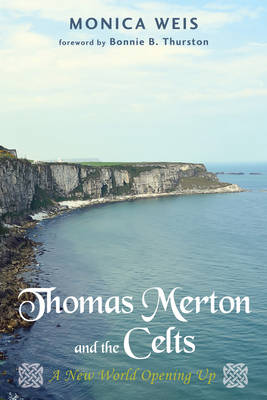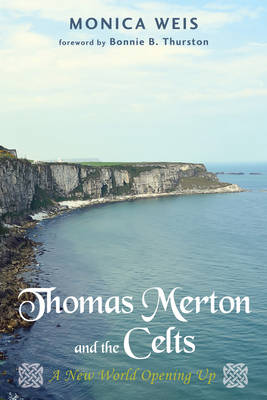
- Retrait gratuit dans votre magasin Club
- 7.000.000 titres dans notre catalogue
- Payer en toute sécurité
- Toujours un magasin près de chez vous
- Retrait gratuit dans votre magasin Club
- 7.000.000 titres dans notre catalogue
- Payer en toute sécurité
- Toujours un magasin près de chez vous
Description
Thomas Merton and the Celts offers a new lens through which to view Merton's life and spirituality. By examining unpublished letters, notebooks, and taped conferences for the Trappist novices--previously unavailable to the general reader--the author breaks new ground in Merton studies, revealing Merton's growing fascination with his Welsh ancestry, Celtic monasticism, and early Irish hermit poetry. Merton, having immersed himself in reading about Celtic Christianity--not just about liturgy, but about household rituals, illuminated manuscripts, high crosses, and hermit poetry as well--recognized in these ancient hermits who lived on ""water and herbs,"" experienced kinship with creatures, and wrote poems about the birds a mirror of his own desires. Indeed, in a profound way and at a deep level, Merton discovered himself in Celtic Christianity. ""Monica Weis has done a wonderful job of pulling together from Thomas Merton's vast corpus, published and unpublished, his many references to Celtic Christianity, in particular to its literary, monastic, and eremitical traditions. She brings them together into an integrated paradigm of understanding that Merton was a pilgrim and a hermit, and a man who moved back and forth, as did many of the Celtic monks, between home and exile. Particularly interesting are her revisionist views of St. Patrick and of the Synod of Whitby, and (a revelation to me) her exposition of Irish hermit poetry. Warmly recommended."" --Donald Grayston, Former President, Thomas Merton Society of Canada and International Thomas Merton Society; author, Thomas Merton and the Noonday Demon (Cascade, 2015) ""Monica Weis's presentation of Merton's interest in Celtic Christianity is thorough and engaging, giving the reader a rich depiction of how the vibrancy of the Celtic world captivated and inspired Thomas Merton in the final decade of his life. The enthusiasm of both Merton and Weis for their subject is infectious and will encourage the reader in their own search for both the 'Promised Land of the Saints' and in their striving to live out of a 'transfigured center.'"" --Paul M. Pearson, Director, Thomas Merton Center ""Known for her insightful study of Thomas Merton's environmental vision, Monica Weis now invites readers to join her in exploring Merton's abiding fascination and deep resonance with Celts and Celtic Christianity. Carefully researched and skillfully written, this book adds a vital dimension to our understanding of Merton's spirituality. A fresh, rich, and valuable contribution to Merton studies and to the growing body of work on Celtic spirituality!"" --Christine M. Bochen, Professor of Religious Studies and William H. Shannon Chair in Catholic Studies, Nazareth College ""Monica Weis quotes from a letter of Thomas Merton to Hans Urs Von Balthasar confessing that his own immersion in the study, scholarly and personal, of Celtic monasticism has become 'a real avocation with me. . . . I can think of nowhere in the West where monastic culture was so drenched in brilliant color and form, with such dazzled love of God's beauty.' It is the special gift of this book that Weis has captured the multi-textured dimensions of Merton's 'Celtophilia, ' and in so unearthing the familial and intellectual roots of his love of the Celtic imagination has compellingly demonstrated Merton's realization that in discovering the Celtic world a whole new perspective had opened up for him--and for us as well, thanks to Weis's diligent and ardent labor of love."" --Michael W. Higgins, Religious Studies Professor and Vice-President for Mission and Catholic Identity, Sacred Heart University, Fairfield, CT Monica Weis, SSJ is Professor Emerita of English at Nazareth College, Rochester, NY. She is the author of Thomas Merton's Gethsemani: Landscapes of Paradise (2005) and The Environmental Vision of Thomas Merton (2011).
Spécifications
Parties prenantes
- Auteur(s) :
- Editeur:
Contenu
- Nombre de pages :
- 158
- Langue:
- Anglais
Caractéristiques
- EAN:
- 9781498278461
- Date de parution :
- 19-09-16
- Format:
- Livre relié
- Format numérique:
- Genaaid
- Dimensions :
- 152 mm x 229 mm
- Poids :
- 385 g







